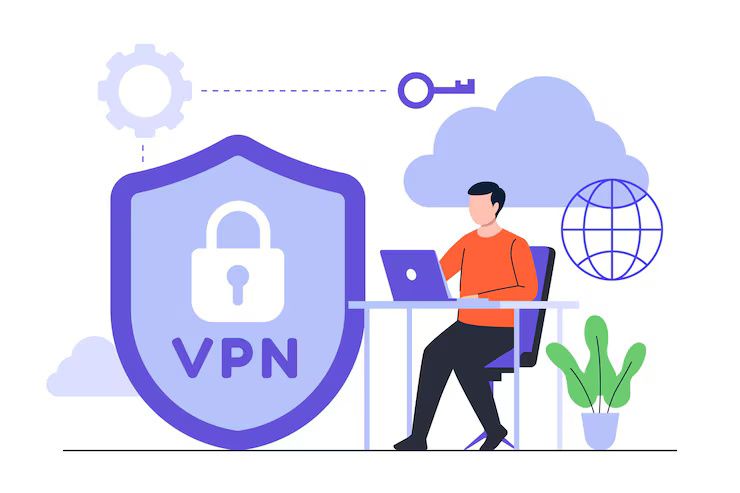In today’s digital-first business environment, organizations rely heavily on secure networks to protect data, enable remote work, and maintain operational efficiency. Virtual Private Network (VPN) services have become an essential tool for businesses of all sizes. By encrypting online activities and creating secure connections, VPNs not only enhance cybersecurity but also improve workflow flexibility and efficiency.
This guide explores the business benefits of VPN services, their importance in a global economy, and why modern enterprises are increasingly adopting them.

What is a VPN Service?
A Virtual Private Network (VPN) is a technology that creates a secure and encrypted connection over the internet. It ensures that sensitive data, such as financial transactions or client communications, remains private while passing through potentially unsecured networks.
For businesses, VPNs enable employees to access internal systems securely, even when working remotely or traveling internationally.
Importance of VPN Services in Business
Data Security: Protects against cyberattacks, phishing, and unauthorized data breaches.
Remote Work Enablement: Provides employees with safe access to company resources from anywhere.
Global Operations: Helps international teams access region-restricted tools and maintain consistent connectivity.
Compliance: Assists in meeting data protection regulations like GDPR, HIPAA, or CCPA.
Key Business Benefits of VPN Services
1. Enhanced Cybersecurity
VPNs use advanced encryption to secure sensitive data such as financial records, contracts, and customer details. This reduces risks of hacking and industrial espionage.
2. Cost Efficiency
Instead of building expensive private networks, businesses can rely on VPN services for affordable yet robust data protection.
3. Improved Remote Access
With hybrid and remote work models becoming standard, VPNs allow employees to securely log in to business systems from any location.
4. Operational Flexibility
Global businesses can bypass geographical restrictions and access tools or data centers seamlessly, ensuring uninterrupted operations.
5. Regulatory Compliance
VPNs support adherence to international privacy laws by ensuring encrypted communication, reducing compliance risks.
Recent Trends in VPN Adoption
Growth of cloud-based VPNs integrated with enterprise platforms.
Rise in Zero Trust Network Access (ZTNA) for higher security layers.
Increasing demand for AI-driven VPNs that detect unusual network activities.
Use of mobile VPNs as businesses adopt BYOD (Bring Your Own Device) models.
How to Choose the Right VPN for Your Business
When selecting a VPN service, businesses should evaluate:
Encryption Strength (AES-256 or higher).
Scalability to handle growing teams.
Cross-Platform Support for desktops, mobiles, and tablets.
Server Locations for global accessibility.
Regulatory Compliance Features tailored to industries like finance or healthcare.
Practical Tips for Businesses Using VPNs
Regularly update VPN software to patch vulnerabilities.
Train employees on secure usage practices.
Combine VPNs with multi-factor authentication (MFA).
Monitor network traffic for anomalies.
Integrate VPN services with cloud applications for seamless workflows.
FAQs on Business VPN Services
Q1. Is a VPN necessary for small businesses?
Yes, even small businesses handle sensitive data and benefit from affordable VPN solutions.
Q2. Can VPNs slow down internet speed?
In some cases, yes, but premium VPN services minimize speed reduction with optimized servers.
Q3. Are VPNs legal worldwide?
VPNs are legal in most countries, though some regions restrict or regulate their usage.
Q4. Do VPNs replace firewalls?
No, VPNs complement firewalls. Together, they form a stronger cybersecurity shield.
Q5. What’s the difference between personal and business VPNs?
Business VPNs offer centralized management, scalability, and compliance features, unlike personal VPNs.
Conclusion
VPN services are no longer optional for businesses—they are a strategic necessity. By enhancing security, enabling flexible work environments, and ensuring compliance, VPNs empower organizations to thrive in a connected world. Companies that integrate VPN solutions into their IT strategies not only safeguard operations but also gain the agility needed to remain competitive.
